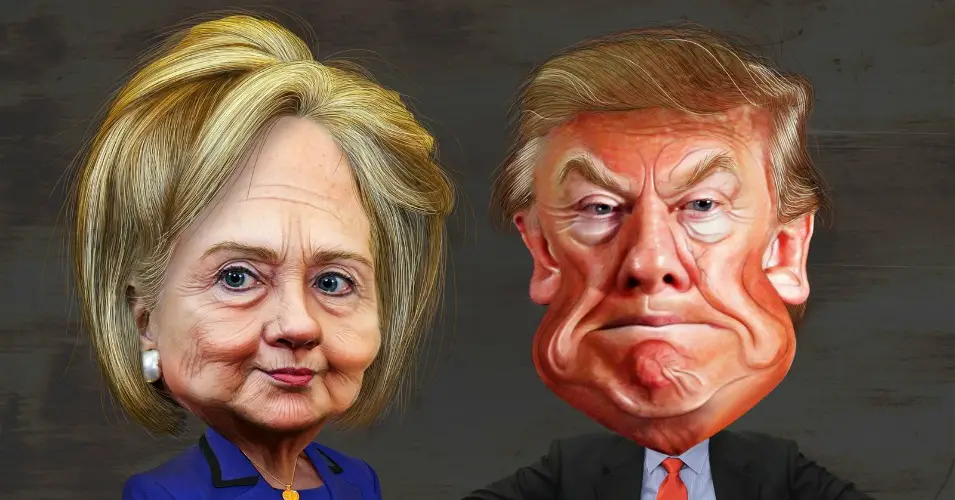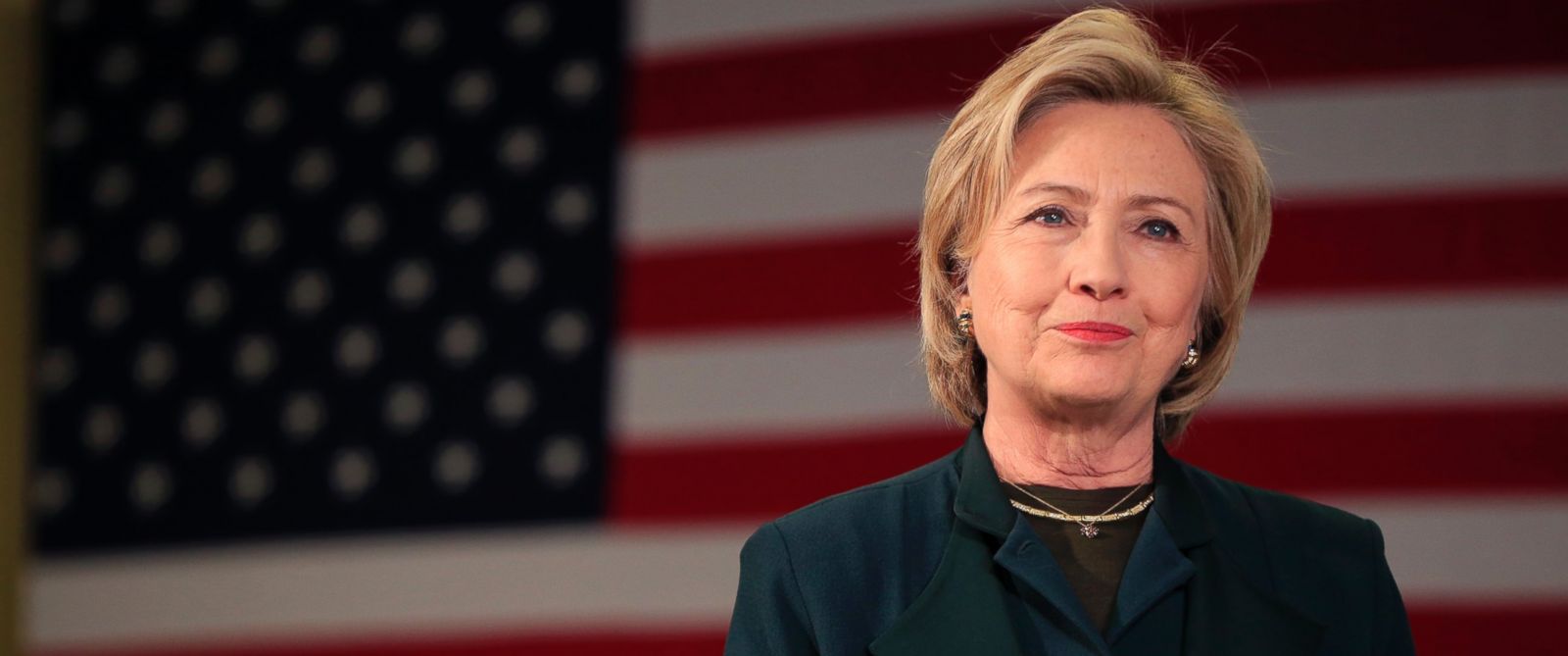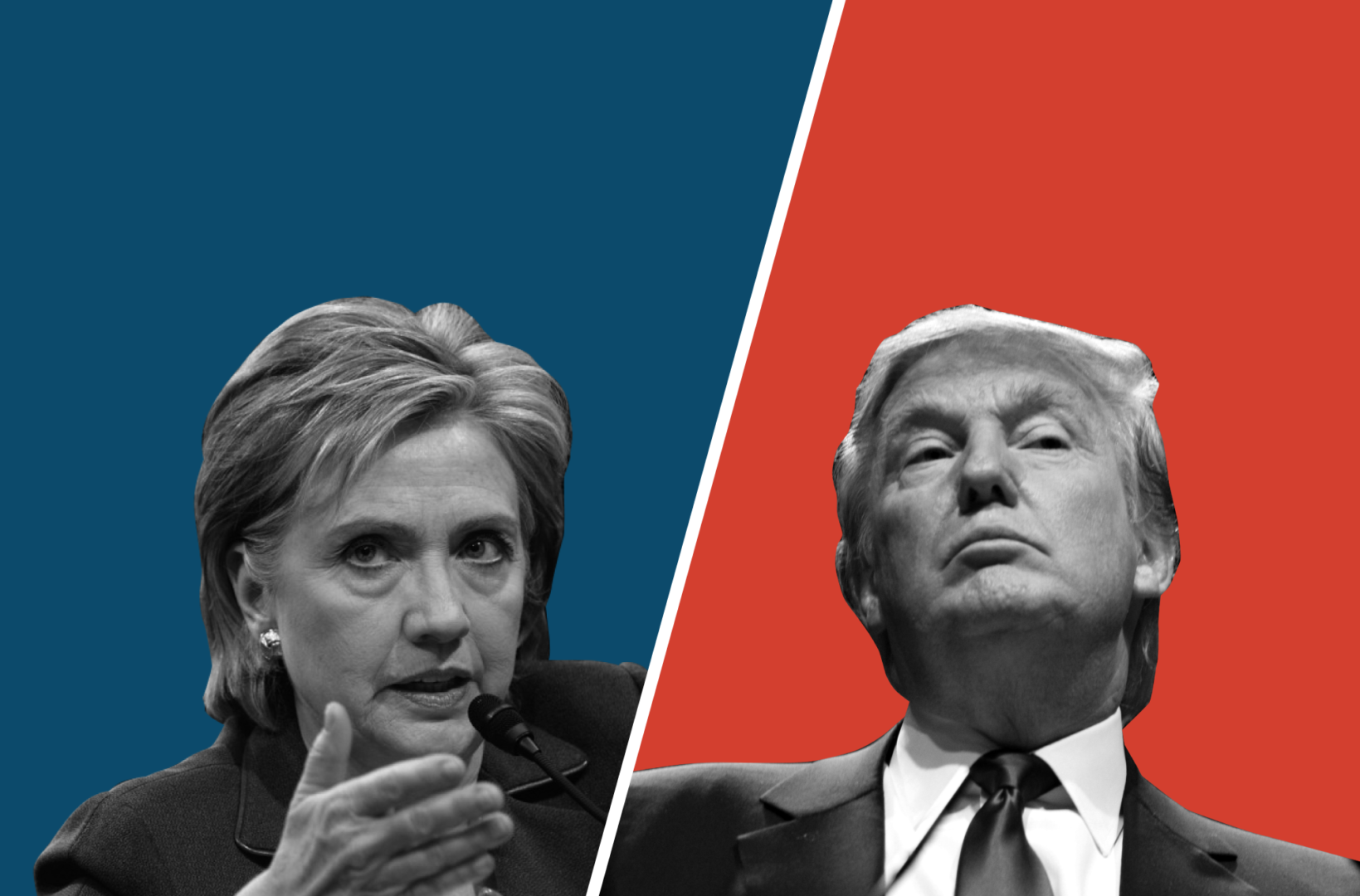Your Guide to the Future of Education, Guns and the Economy
Don’t treat the election like a personality contest; here’s an unbiased guide to the candidates’ views on the most important issues.
By August Wright, College of Charleston
I’m not a Democrat or a Republican.
When I go to vote, I vote for the individuals whose policies are most in line with my own views. Voting should happen in this way, without teams.
Political parties divide a nation’s citizens and work (whether purposefully or not) to turn these citizens against each other. People get whipped into a frenzy about their political allegiances, and the actual meaty political stuff—the stuff that matters—often gets overlooked. I think I can strengthen this point by asking a simple question: We’re only a few days away from the election, but how many trending headlines have you seen that aren’t about the scandals surrounding both Trump and Clinton? How many stories have you seen that just offer each candidates’ policies, in some brief summarized form, for your leisurely perusal?
I’m not saying we shouldn’t know about scandals—of course we should because we all need to gossip and be ashamed of our leaders—but those scandals shouldn’t necessarily be the deciding factor in who you vote for (unless the candidate is Mark Sanford). Similarly, your party affiliation shouldn’t decide who you vote for and neither should any preconceived notions about the candidates.
In fact, those preconceived notions must be ignored. I know that that’s hard especially for this election because most (all?) of us were familiar with Trump and the Clintons since the 1990s. But those notions have to go. If they don’t, people end up supporting Trump or Clinton based mostly on their personalities.

Sure, the election is a personality contest, but that’s only half of it. The other half is what those potential presidents plan to do for our country. I know these aren’t profound statements, but I’ve heard far too many people say things like, “I’m not voting for Trump because he’s Trump.” That’s not a good reason. That’s actually not a reason at all. I’ve heard the same type of things said about Clinton.
Since the election is only a handful of days away, I’ve decided to briefly summarize Trump and Clinton’s policies on education, gun control and the economy/jobs. There are a TON of issues, but I’ve chosen these three because they have a high potential to impact young adults. This list is only meant to inform, and any remarks that seem biased in nature are accidental. I’m not trying to sway anyone toward or away from either candidate.
However, for those of you who remain undecided on voting day, please feel free to write my name in for president.
Education
Trump’s policies regarding education have a smaller focus than Clinton’s, and he’s mainly concerned with school choice in K-12 schools. His plan here is to throw a lot of money ($20 billion) into school choice, which would give kids the opportunity to go to better private, public, charter and magnet schools. The idea here is that kids in poverty-stricken areas would no longer have to go to crappy, underfunded schools. With a combination of federal and state monies, these students would have the opportunity to attend schools outside their district, which may help to eventually shorten the achievement gap. If this policy is successful, it would mean that all students—regardless of social class, race, or gender—would have the same access to good, well-funded schools.
Trump also supports reducing university attendance costs as well as reducing student loan debt, but the effort has to come more from the universities themselves. If universities are making a good faith effort to reduce cost and debt, Trump will reward them with federal tax breaks and tax dollars. It doesn’t say how he’ll do this, but Trump wants to make universities (as well as vocational/technical schools) easier to pay for/complete.
Unlike Trump, Clinton’s policies are aimed more at gently revising our current primary and secondary school system. Her plan is to pay teachers more (no word on how), to rebuild schools that are falling apart via the Build America Bonds program, and to reform schools that have strict disciplinary measures (by providing these schools with $2 billion to reform). This last policy is really aimed at school disturbance laws (in South Carolina, students have been arrested for violating this law, which is basically a “don’t loiter or act obnoxiously” law. I’m not sure about you, but I don’t know any teenager who doesn’t loiter or act obnoxiously.).
Her plan for universities is more involved than Trump’s, but her goal is to make tertiary education free (like it is everywhere else in the world). By 2021, families that make $125,000 or less a year will be able to send their kids to an in-state public college/university for free. If Clinton wins the election, any student whose family makes $85,000 or less will be able to go to an in-state college/university for free immediately. Her plan would also make junior colleges completely free.
Clinton also wants to give all federal loan borrowers a three month moratorium on loan payments. This moratorium would give those of us with student debt a chance to refinance, to participate in repayment plans that are income-based and to consolidate loans. Entrepreneurs are probably the luckiest group because they’ll have the option to defer their loans (with no interest) for three years, and $17,500 of their loan debt would be eligible for forgiveness should they begin a venture in a troubled community.
Gun Laws: The Second Amendment

Trump’s main plan is to protect and uphold the Second Amendment. By using programs like Project Exile (short version: Felons caught with firearms are prosecuted in court with harsher penalties, no chance of parole and no chance of bail), Trump plans to reduce the number of criminals on the streets with the goal of reducing overall gun violence.
He supports gun owners who follow the law and, as a result, he believes the right to carry should be legal in every state. Trump wants to remove gun and magazine bans, but he also wants to reform the U.S.’s background check system, which he views as broken.
Unlike Trump, Clinton only wants to expand the background check system, a plan which would include the discontinuation of gun shows, internet gun purchases and—shout out to Charleston—the Charleston Loophole. (Short version: The massacre at AME Church in June 2015 could’ve been avoided if the three-day window for completing the shooter’s background check hadn’t run out. Because his background check was incomplete after three days, the shooter’s drug possession charge—which would’ve prevented him from buying the gun—wasn’t found, and he was able to obtain the weapon.)
Clinton plans to take on the gun lobby and, in a move contrary to Trump, is in favor of banning certain weapons from the streets (military weapons, for example) as well as keeping guns out of the hands of former criminals and those with severe mental illness.
Economy & Jobs
Trump’s plan for jobs is to create a better, more dynamic economy which will gradually (over a decade) create 25 million new jobs. His plan to do this focuses on America’s trade policy (America-First), an energy plan and the One Cent Solution (or “Penny Plan”). This latter act would cut federal spending by 1 percent except in the defense sector and for programs like Social Security/Medicaid.
Please note that the lack of hyperlinks in this section is simply due to a lack of sources. I couldn’t find anything specific to Trump on a policy called “America-First,” nor could I find an unbiased article about the Penny Plan (all the articles were centered on why it wouldn’t work, which I didn’t want to use because this article is attempting to not be biased).

Clinton’s plan for the economy isn’t extremely contrary to Trump’s own. Like her competitor, she also supports an energy plan (hers seeks to have clean, renewable energy for powering all American households within ten years), and she wants to alter trade policies in order to stimulate the American economy and job market (for example, opposing the Trans-Pacific Partnership).
Clinton also has a plan for stimulating American manufacturing (the “Make it in America” plan), which is a $10 billion plan that would basically bring factories back to America (instead of in China, the American flag producing capital of the world). This plan is interesting mainly because of the way in which Clinton intends to pay for it—revenue from clawbacks. (Short version: Any companies that received a tax break will have it rescinded if they outsource jobs to other countries.)
These policies are just the tip of a much larger iceberg, but seeing which candidate has views similar to yours is a good place to begin. By removing party vernacular and looking at just these plans, neither candidate seems that bad. Both have their pros and cons, and you have to take the good policies with the bad. For example, I think putting money into school choice is a good idea and an interesting way of tackling the achievement gap problem, but I really don’t think building a wall around America to keep immigrants out is a good use of resources.
The United States was founded by immigrants (at the expense of the Native Americans), so I think having, in general, extremely stringent rules regarding immigrants is not true to who we, historically, are.
But, on the other hand, we also have a history of not letting women have a whole lot of political agency, so perhaps the past isn’t always the best place to turn to when trying to find reasons for why something should or shouldn’t be done.

















